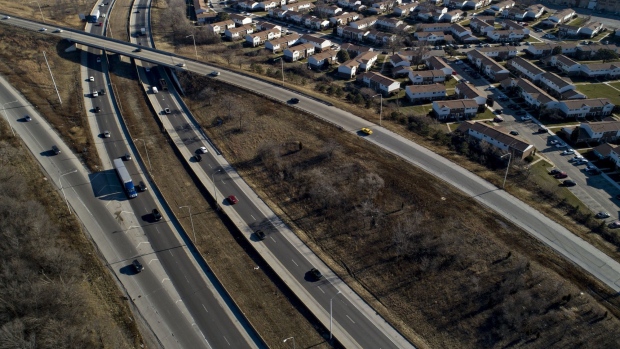May 14, 2021
Biden’s IRS Blocks Developer Push to Expand a Trump Tax Break
, Bloomberg News

(Bloomberg) -- President Joe Biden’s administration is shutting down attempts by developers to use new Census Bureau maps to claim generous tax breaks enacted by Donald Trump.
The Internal Revenue Service announced Friday that boundaries for the nation’s roughly 8,700 opportunity zones -- mainly poor areas in need of economic development -- “were established at the time they were designated and are not subject to change.”
Bloomberg News reported in February that hundreds of Census tracts underpinning the zones were altered as a part of the nation’s once-a-decade count of the population. Some of those changes came after overtures from businesses and officials interested in expanding the tax incentives to new areas, such as a portion of Pittsburgh where the National Hockey League’s Penguins are pursuing a $1 billion development project, and a sprawling logistics park outside of Baltimore where Amazon.com Inc. and Under Armour Inc. have facilities.
The IRS’s three-page announcement effectively bars investors from claiming the tax breaks on real estate or businesses they fund in the new areas.
Investors can get the incentives by selling an asset that has appreciated in value and plowing the proceeds into projects or businesses in a zone. That lets them defer taxes on capital gains through 2026. If the new asset is held at least a decade, it’s not subject to any capital gains tax when sold.
‘Big Reforms’ Sought
The IRS’s decision limits a program that Trump administration officials had planned to expand. Some critics have advocated for broader reforms.
The incentives were sold as a way to help the poor, by encouraging investment in distressed areas. But they have since been used to finance everything from luxury apartments in Houston to a Ritz-Carlton hotel in Portland, Oregon. Economists at the University of California at Berkeley recently documented how investors have gravitated toward zones that were already on the upswing.
“This is playing it safe,” Brett Theodos, a senior fellow at the Urban Institute, said of the IRS decision. The Biden administration “is embracing status quo on opportunity zones and is not undertaking the big reforms that are needed, but it’s also not expanding the program at every turn that the Trump administration did.”
By sticking with the original boundaries, the current administration avoids having to make tricky calls about where the tracts underpinning zones shrank or split because of the Census-map revisions, Theodos said.
The administration “would be hard-pressed to say the boundaries would be expanded without saying they should be shrunk where they were shrunk,” he added. “In politics, it’s very tough to take away benefits.”
‘Do No Harm’
The IRS decision also resolves a debate among people active in policymaking around the zones. An influential accounting firm, Novogradac & Co., was among those requesting that expansions of the zones be eligible for the tax breaks after the Census Bureau’s changes. But earlier this week, the think tank that came up with the idea for the incentives asked top Treasury and IRS officials to state that the changes have no impact on the boundaries of the zones.
John Lettieri, who heads that organization, the Economic Innovation Group, emphasized the need for investors to have some certainty, something Novogradac wanted as well. “We basically said, to start with, ‘do no harm,’” Lettieri said. “These are the operative boundaries, and let’s make that as clear as possible.”
The administration is still figuring out how to tweak the rules for the incentives. At a conference this week, an IRS official said some “cleanup” is needed in the opportunity zone area, without adding detail.
Lawmakers have proposed a variety of changes to boost transparency and limit some kinds of investment in the zones. The IRS decision was welcomed by one of them on Friday.
“I opposed revisiting the Census tract boundaries,” Senator Ron Wyden, an Oregon Democrat, said in an emailed statement. “This would have been a way to make even more projects in wealthy communities eligible for massive tax breaks. The opportunity zone program was sold as a way to benefit low-income communities, and revising Census tracts would have moved the program even further from achieving that goal.”
Yet advocates for changing zone boundaries may not give up on seeking some sort of breaks.
Maryland Congressman Dutch Ruppersberger, whose district encompasses the Sparrows Point logistics park near Baltimore, “will be exploring narrowly tailored legislative options to spur private investment in distressed communities” left out of opportunity zones, the Democrat’s spokesperson, Jaime Lennon, said in an email.
©2021 Bloomberg L.P.





